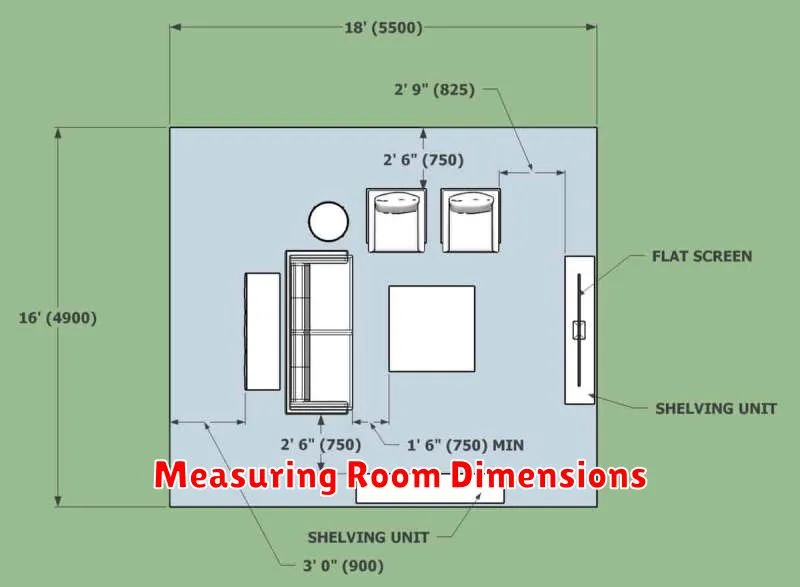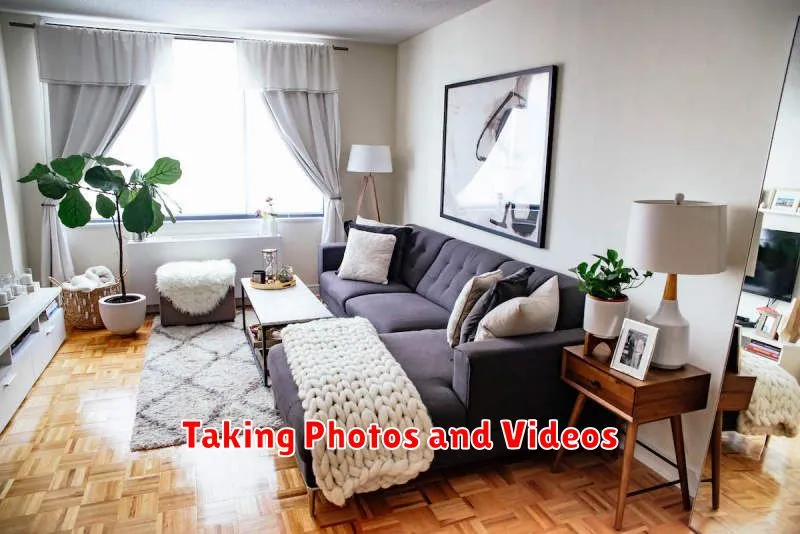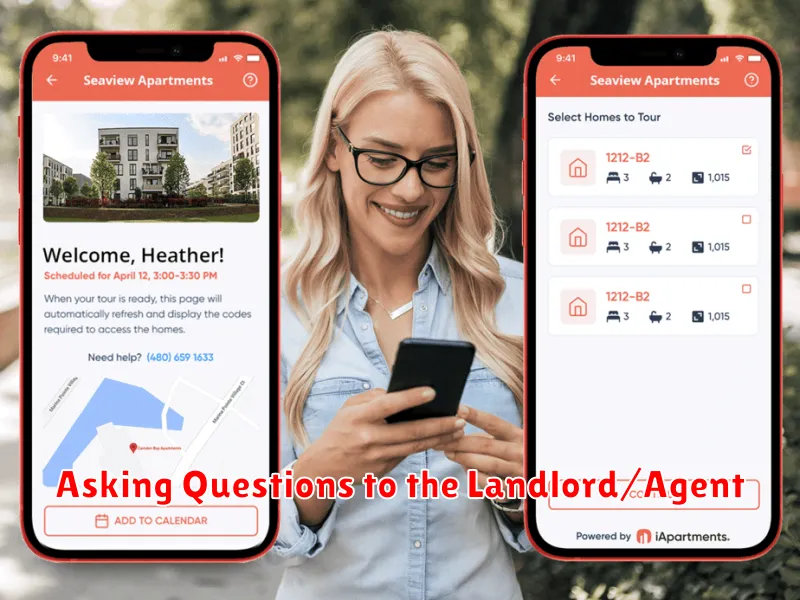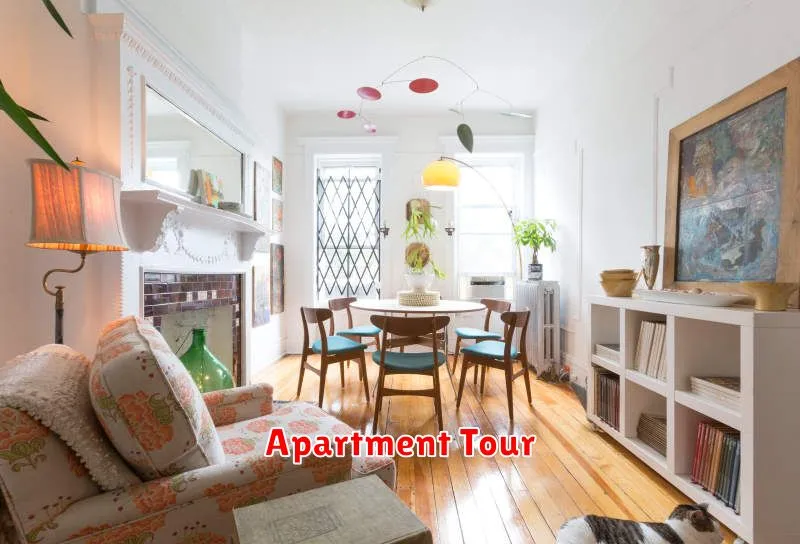Looking for a new place to call home? Finding the right apartment can be a daunting task, but it doesn’t have to be. With a little preparation and a keen eye, you can ensure you find a place that meets your needs and fits your budget. This article will guide you through the essential things to look for when touring an apartment. From evaluating the apartment’s condition and amenities to considering the surrounding neighborhood and safety, we’ll cover all the key factors to help you make an informed decision. So grab your checklist, put on your detective hat, and let’s find your perfect apartment!
Inspecting the Apartment Unit
Once you’ve scoped out the building and the surrounding neighborhood, it’s time to take a closer look at the actual apartment unit. Pay attention to the following:
Size and layout: Does the apartment fit your needs? Are the rooms large enough for your furniture? Is the layout functional? Walk through each room, opening and closing closets and cabinets to ensure they are in good working order.
Natural light: How much sunlight does the apartment get? Open the blinds or curtains to see how the apartment looks during the day.
Noise levels: Can you hear any noise from outside or from other units? If you’re visiting during a quiet time of day, ask if you can come back later to see how the apartment feels during busier hours.
Appliances: Check that all appliances are in working order. This includes the stove, oven, refrigerator, dishwasher, washer, and dryer (if included). Note any cosmetic flaws or issues with functionality.
Plumbing: Run the water in the sink, shower, and bathtub to check for leaks and water pressure. Flush the toilet to make sure it’s working properly.
Heating and air conditioning: Turn the thermostat up and down to see if the HVAC system is working properly. Check the windows and doors for drafts.
Overall cleanliness: Is the apartment clean and free of dirt, dust, or stains? This can be a good indicator of the landlord’s maintenance practices.
Safety and security: Check for working smoke detectors, fire extinguishers, and carbon monoxide detectors. If the apartment has a balcony, ensure it’s in good condition with a secure railing.
Don’t be afraid to ask questions. Your potential landlord should be able to answer any questions you have about the apartment.
Assessing the Building and Surroundings
Once you’ve toured the apartment itself, take some time to check out the building and surrounding area. This can give you a sense of the building’s overall quality, safety, and the community it’s located in. Pay attention to:
Building condition: Is the exterior well-maintained? Are there any visible signs of damage or neglect? This can be an indicator of how the building is managed and maintained overall.
Security features: Does the building have security cameras, a doorman, or other security measures? This can be important for your peace of mind, especially if you’re living in a city.
Neighborhood atmosphere: Take a walk around the neighborhood and get a feel for the area. Is it quiet and peaceful? Does it feel safe? Are there amenities nearby that you might need, like grocery stores, restaurants, or public transportation?
Noise levels: Even if the apartment itself seems quiet, it’s important to consider the noise level of the building and neighborhood. Are there any major sources of noise nearby, such as busy streets, construction sites, or bars? Can you hear your neighbors? This is especially important if you’re sensitive to noise.
Parking: If you’re planning on having a car, make sure to inquire about parking options. Is there street parking available? Is there a parking garage or lot? What are the costs involved?
By assessing the building and surrounding area, you can get a better understanding of the overall living experience at the apartment you’re considering.
Evaluating Safety and Security Features
When touring an apartment, it’s crucial to assess the safety and security features to ensure your well-being and peace of mind. Here are some key aspects to consider:
Building Security: Look for features like secure entry systems with key fobs or intercoms, gated entrances, and well-lit common areas. These measures deter unauthorized access and provide an extra layer of protection.
Unit Security: Pay attention to the locks on doors and windows. Check for deadbolt locks on exterior doors and ensure windows have secure latches or locks.
Fire Safety: Confirm the presence of smoke detectors and fire extinguishers within the apartment and throughout the building. Make sure these devices are functioning properly.
Neighborhood Safety: While touring the apartment building, take a walk around the surrounding neighborhood. Observe the level of foot traffic, lighting, and the presence of any potential safety concerns.
By meticulously evaluating safety and security features, you can make an informed decision about your future home and ensure a safe and secure living environment.
Checking for Maintenance Issues
While you’re touring the apartment, take a look around for any signs of neglect or maintenance issues. This is a good indicator of how the landlord or property manager cares for the building and how they might respond to your own maintenance requests in the future. Look out for things like:
- Cracked or peeling paint
- Water damage
- Leaky faucets or pipes
- Mold or mildew
- Damaged appliances
- Broken windows or screens
If you see any of these problems, ask the landlord or property manager about them. Find out what their plans are for fixing them. You may also want to ask about their policies for handling maintenance requests. This will help you get a sense of how responsive they are to tenants’ needs.
Confirming Amenities and Utilities
While the apartment’s overall layout and condition are important, you should also pay attention to the amenities and utilities included in the rent. This is where you can ask questions to get a clear picture of what’s included and what costs you’ll incur. It’s better to know all of this before you sign any leases. Ask questions about the included appliances, like refrigerators, ovens, dishwashers, washers and dryers, and even parking spaces. Also, make sure to find out what utilities are included in the rent, and what the renter is responsible for. The more you know about the utilities, the better you’ll be able to plan your budget. This is also a good time to ask about internet and cable options as well as any pet policies.
Considering Natural Light and Ventilation
Natural light and ventilation are crucial for creating a comfortable and healthy living environment. When touring an apartment, pay close attention to these factors.
Look for apartments with large windows that allow ample sunlight to enter. Consider the direction the windows face. South-facing windows offer the most sunlight throughout the day, while north-facing windows provide cooler temperatures during the summer.
Evaluate the ventilation system. Check for operable windows and ensure they are in good condition. Inquire about the building’s ventilation system, especially if the apartment is located in a densely populated area. Adequate ventilation is essential for removing odors and pollutants.
Inquiring About Parking and Transportation
Before signing a lease, it’s vital to consider how you’ll get around. Parking is often a major concern in urban areas, so inquire about the availability of parking spaces. Determine whether the apartment complex offers assigned parking, guest parking, or parking garages. Learn about the costs involved, such as monthly fees or permits. Consider the availability of public transportation if you plan to rely on buses, subways, or trains. Check the frequency of public transportation routes near the apartment complex and the convenience of walking distance to stops. If you own a vehicle, inquire about nearby gas stations and charging stations for electric vehicles.
Reviewing Lease Terms and Policies
While touring an apartment, it’s crucial to go beyond the aesthetics and consider the practical aspects of living there. One critical aspect is reviewing the lease terms and policies. These documents outline your responsibilities and rights as a tenant, so understanding them is essential before signing.
Pay attention to the lease duration, which specifies how long you’ll be obligated to stay in the apartment. It’s crucial to understand the renewal process and any associated fees or notice periods. Additionally, carefully examine the rent payment terms, including due dates, late fees, and accepted payment methods.
Further, review the pet policy if you have furry companions. Understand any breed restrictions, deposit fees, and limitations on the number of pets allowed. Explore the parking policy, including assigned spots, fees, and guest parking options.
It’s equally important to understand the maintenance procedures outlined in the lease. Familiarize yourself with the process for reporting repairs, who is responsible for maintenance, and any associated fees. Lastly, examine the termination clause, understanding the notice period required to vacate the apartment and any potential penalties for breaking the lease.
Evaluating Noise Levels and Neighborhood Vibe
While the apartment itself is important, don’t forget to consider the surroundings. After all, you’ll be living there, not just visiting. Take a moment to assess the noise levels and the overall neighborhood vibe.
Pay attention to any nearby traffic, construction, or businesses that might create noise. If you’re sensitive to sound, consider touring the apartment during different times of day to get a feel for the noise levels.
Also, get a sense of the community by taking a walk around the neighborhood. Do you see people out and about, enjoying the area? Does it feel safe and welcoming? These factors can play a big role in your overall happiness and sense of belonging in your new home.
Envisioning Your Furniture and Belongings
As you tour an apartment, it’s important to go beyond simply admiring the space. Start picturing yourself living there. How will you arrange your furniture? Will your belongings fit comfortably? This mental exercise helps you determine if the apartment truly fits your lifestyle and needs.
Take measurements of your key pieces of furniture – couch, bed, desk – and mentally place them in the rooms. Visualize where you’d store your clothes, books, and other belongings. If you find yourself struggling to fit everything or feel cramped, it may be a sign that the apartment is not the right fit for you. Additionally, pay attention to the size and shape of the rooms – can you easily move around with furniture in place?
Consider your needs. If you work from home, ensure the apartment offers sufficient space for a home office. If you have a large collection of books, are there adequate shelves or built-in storage? By picturing your belongings in the space, you can better assess if it meets your unique requirements.
Considering Lifestyle and Needs
Before you start touring apartments, it’s important to consider your lifestyle and needs. This will help you narrow down your search and find an apartment that is a good fit for you. Ask yourself questions like:
- How much space do you need?
- Do you need a certain number of bedrooms or bathrooms?
- What amenities are important to you? (e.g., laundry in unit, parking, pet-friendly, etc.)
- What is your budget?
- What is your preferred location?
- Are you looking for a quiet, family-friendly, or bustling neighborhood?
Once you have a good understanding of your needs, you can start touring apartments. This will help you make a more informed decision and avoid wasting time on apartments that are not a good fit for you.
Measuring Room Dimensions

Before you get too excited about an apartment, take out your measuring tape and get a sense of the space. You can make a simple sketch of the floor plan on a piece of paper or use a digital tool like Magicplan.
Focus on the dimensions of the rooms you’ll use most often, like the living room, bedrooms, and kitchen. This will help you determine if your furniture will fit comfortably. Don’t forget to measure the width of doorways to ensure your furniture can be moved in and out easily.
While you’re at it, take note of the ceiling height. This is particularly important if you plan on hanging artwork or lighting fixtures. Also, consider the window sizes and their placement, as they can impact natural light levels and your overall view.
Taking Photos and Videos

When touring an apartment, it’s important to take photos and videos to document the space. This will help you remember the details of the apartment and allow you to compare it to other apartments you tour. Be sure to capture the following:
- Overall layout: Take photos of each room, including the kitchen, living room, bedrooms, bathrooms, and any other spaces.
- Details: Capture close-up photos of any features that are important to you, such as the appliances, cabinets, flooring, and countertops.
- Natural lighting: Take photos and videos during the day and evening to get a sense of how the apartment looks in different lighting conditions.
- Any imperfections: Document any damage, stains, or other imperfections you notice in the apartment.
- The view from the windows: This will help you understand the surrounding area.
Taking photos and videos will allow you to make an informed decision about whether or not the apartment is right for you.
Asking Questions to the Landlord/Agent

Once you’ve checked out the basics of the apartment, it’s time to start asking questions. This is your chance to get a better understanding of the property and see if it’s truly a good fit for you.
Here are some key questions to ask the landlord or agent:
- What are the lease terms? Ask about the length of the lease, the renewal process, and any penalties for breaking the lease.
- What are the utilities included? Find out which utilities are included in the rent, and which ones you’ll be responsible for paying.
- What are the pet policies? If you have pets, make sure to ask about the pet policy, including any breed restrictions or fees.
- Are there any parking options? If you have a car, ask about parking options, such as on-street parking, assigned parking spots, or garage parking.
- Is there a laundry facility? If the apartment doesn’t have a washer and dryer, ask about laundry facilities on-site or in the nearby area.
- Are there any ongoing repairs or renovations? Ask if there are any plans for repairs or renovations that may affect your stay.
- Are there any noise restrictions? If you’re concerned about noise levels, ask about any noise restrictions or policies.
By asking these questions, you can gain valuable insights into the property and ensure that it’s a good fit for your needs.

